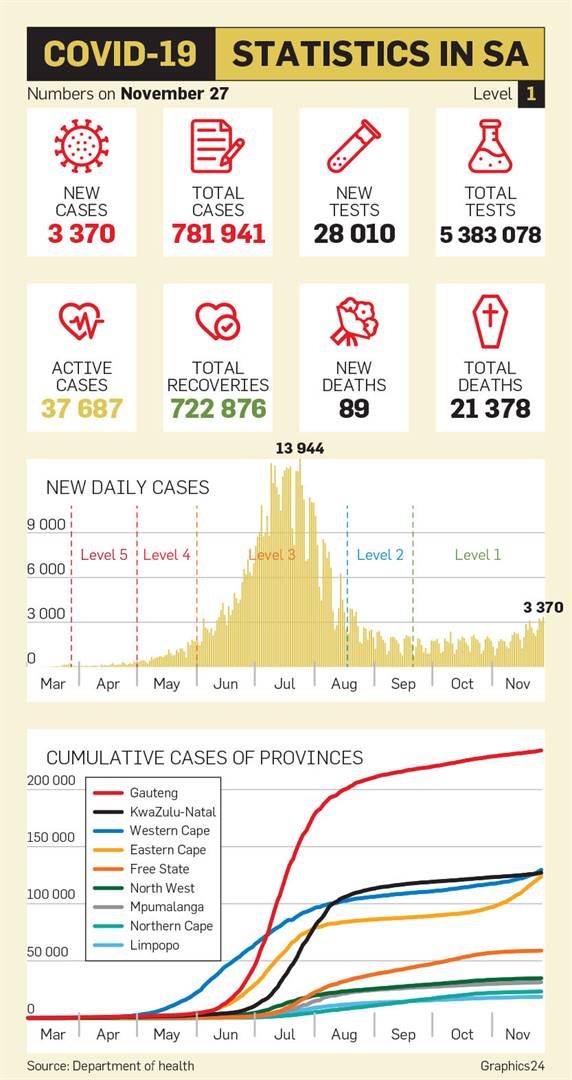
Eighteen months ago, Kopano Mofokeng began supplying cooking oil to street food vendors in Soweto, guaranteeing delivery within the hour and offering stock on credit before gradually expanding to products ranging from liver to chicken feet.
Then the coronavirus outbreak hit and the country was shut down by the end of March. As the national economy tanked, Mofokeng feared the worst – that is, until he realised that government orders to stay indoors and stop traveling were triggering a surge in demand for local food.
Today, his Kasi Convenience company is thriving: He’s switched to chicken, charcoal and polystyrene fast-food boxes – he uses his grandparents’ home for storage – and works seven days a week with a team of friends and neighbours that’s grown to eight.
“Covid has been tough but it’s benefited the economy of the townships and it was nice to see that,” Mofokeng, a 28-year-old former website product developer, said as he helped unload a truck with boxes of frozen chicken from Poland.
“Vendors who were brave enough to stand on street corners particularly reaped the rewards. People saw it was cheaper to buy fast food than to cook at home – for R20 you can feed your kids a meal.”
Seven months of lockdown regulations have slammed South Africa’s economy and prolonged a recession the government was struggling to reverse before the pandemic hit.
Thousands of boutique hotels and high-end restaurants folded, retail stores fled brand-new air-conditioned malls catering to the middle class and unemployment is at a 17-year high.
The government expects the economy to contract by more than 7% this year. The toll is evident in the proliferation of for-rent signs on gleaming office towers and the swelling number of haggard men begging for change at traffic lights in Johannesburg’s business district of Sandton and nearby suburban streets.
Several state-owned companies plan to cut jobs; the national airline is bankrupt.
Yet the densely populated townships on the outskirts of Johannesburg quickly sprung back to life after a hard lockdown in April – especially Soweto, home to an estimated 1.6 million people.
While movement restrictions meant that most workers stopped commuting to the city and its suburbs, few people stayed indoors. Rather than standing in long lines outside supermarkets, many turned to corner shops instead.
In a country rife with racial, class and spatial divisions, Soweto residents, distant from the more heavily policed wealthy suburbs, were able to ignore government warnings and rely on neighborhood businesses to cut their hair, buy second-hand clothes or find beer, which was officially banned.
“Prior to lockdown, small and informal retailers were already growing because of proximity and the cost and inconvenience of transport,” said GG Alcock, a marketer and author who specialises in township economies. “The lockdown has simply fast-tracked the economic revolution of local and small-scale businesses. There’s been a great deal of shopping locally.”
Alcock estimates the size of South Africa’s informal food sector at R80 billion, saying there’s a strong economy “out there that’s completely invisible.”
More than half of the business owners in Gauteng operate in the informal sector, according to the Gauteng City-Region Observatory, a development policy group.
The Covid-19 coronavirus outbreak crippled tens of thousands of informal traders, many of them foreigners, who weren’t considered essential workers and were barred from operating for several weeks, according to Mamokete Matjomane, a researcher at the observatory.
It was only after advocacy groups lobbied the government that regulations were amended to help food traders, including fruit and vegetable sellers, she said.
“Informal businesses have been most affected by the pandemic due to a number of factors such as longstanding infrastructure issues,” Matjomane said.
Read: Black entrepreneurs, you are on your own
“Resilient businesses have been those that are able to access government relief, and these are mainly small businesses that have attained a certain level of formality.”
Even so, other small businesses like Mofokeng’s expanded without government support.
Soweto bakery owner Refiloe Rantakoe began sending young men out with metal pushcarts to sell loaves of bread door to door. The experiment was so successful that he was able to open a second bakery in June, almost doubling his output to 1 200 loaves a day.
“The lockdown has helped me to think differently about business,” Rantakoe said. “Innovation was the scary thing. I liked it because it helped me to think out of the box.”
Today he employs more than 20 people, and both his bakeries operate night shifts to keep up with demand.
“Huge business can be done in the townships: We eat and drink every day,” he said. “We can’t rely on the government. We need to do our own thing.” –Bloomberg
| ||||||||||||||||||||||||||||||
 |




 Publications
Publications
 Partners
Partners











